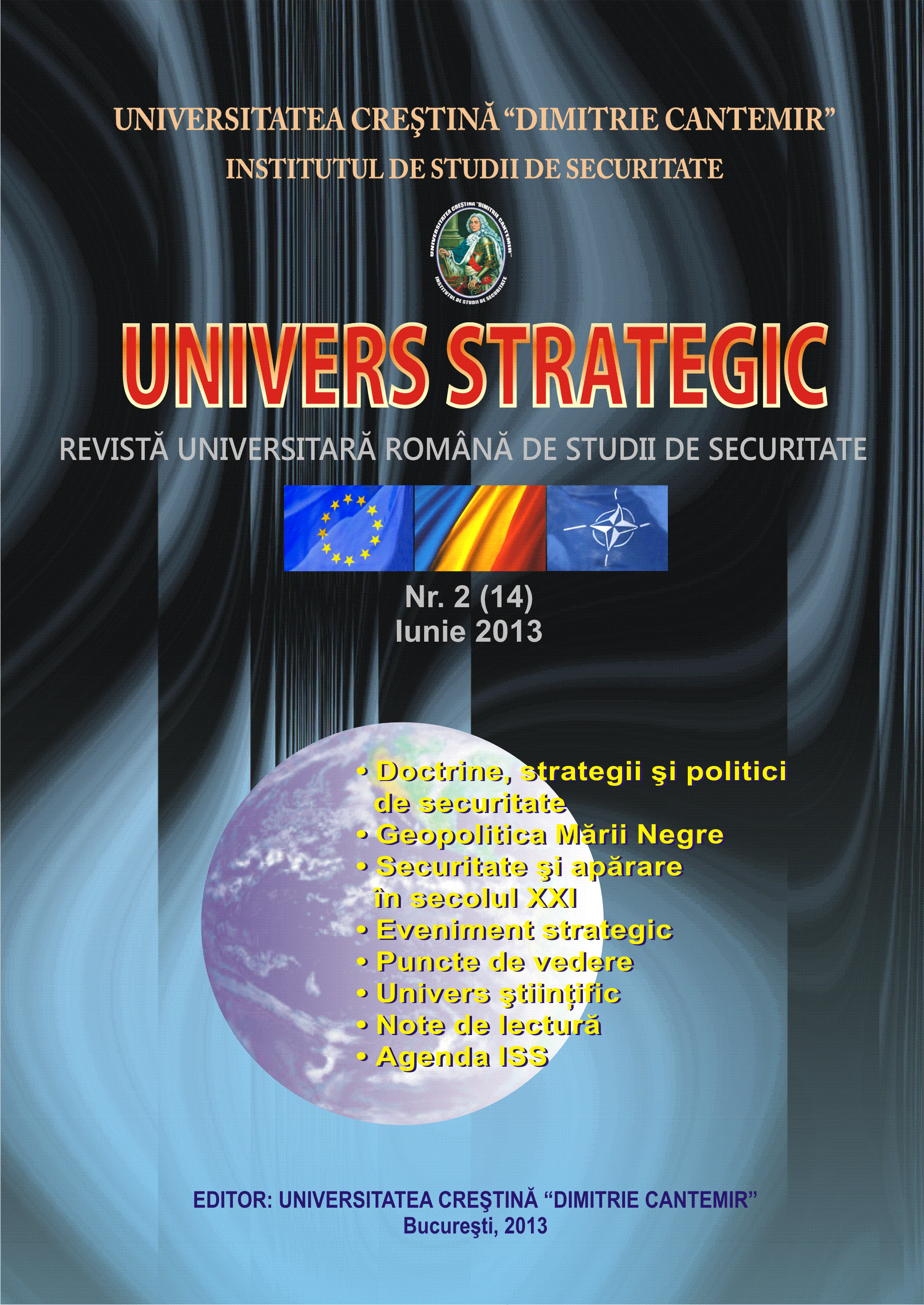PROBLEMA KURZILOR ÎN SIRIA
THE KURDY PROBLEM IN SIRIA
Author(s): Riad Awwad, Alexandru Bodolică, Andrei Felix RoatăSubject(s): Politics / Political Sciences, Security and defense, Inter-Ethnic Relations
Published by: Universitatea Crestina "Dimitrie Cantemir"
Keywords: Kurdish minority; PKK; Kurds in Syria; Kurdish state;
Summary/Abstract: Because they are persecuted in their countries of adoption: southern Turkey, northern Iran, Iraq and Syria, no one offers real data on the number Kurdish minority. Thus, many unofficial statistics circulate, but according to some Kurdish centers of statistics is estimated to be 30 million Kurds in the world of which 16 million are located in Turkey, 6 million in Iran, 5 million in Irak, 3 million in Syria, alongside Kurds scattered in all countries.Statistics of Syria says that about 2 million Kurds reside on its territory. A community of Kurdish minority is located in northeastern Syria (Al Qamishli, Al Hasakah, Amud, Kahtanieh, Al Malikiyah, Ayn al Arab). Another community is in Afrim, the Kurdish mountain, north of Aleppo. Both communities are on the Syrian border with Iraq and Turkey, respectively. Third Kurdish community is located in Damascus, Kurdish neighbourhood. Kurdish problem has arisen and has deepened with the collapse of the Ottoman Empire, the Sikes-Picot Treaty on 9 May 1916 that divided the countries under Ottoman rule between Syria, Iraq, Lebanon, Jordan and the current State of Israel (Palestine) and has outlined a new Turkish state border.Following this treaty, Kurds remained divided, outside the political game and with no gain. Of course, at that time Kurdish population was less large. After World War II, after the revolution Barzani in Iraq and the desire of Kurdish people from Iran to create a state, was created Republic of Mahabad in Iran, known as Republic of Kurdistan. Kurds in Syria have started to demand their rights in the same period.It’s useful to know that the kurdish minority is a major component of the Syrian family. After the revolution of 2011, Syria decided to give Syrian citizenship to all Kurds. Kurds have left a good impression in the states where they lived. For example, after the Second World War in 1949, Syria had a Kurdish president (Husni al-Za'im), who occupied the position of Prime Minister, along with a large number of ministers, politicians, army leaders. With the revolution of 2011, the Kurdish minority tried to obtain some political advantage so requested its autonomy. The next step was the creation of their own constitution.
Journal: Revista Univers Strategic
- Issue Year: IV/2013
- Issue No: 14
- Page Range: 120-123
- Page Count: 4
- Language: Romanian

